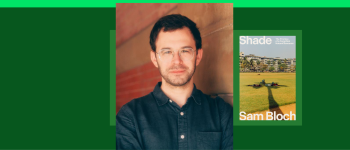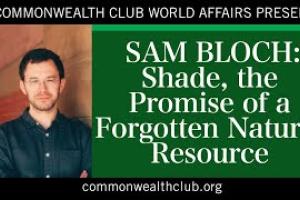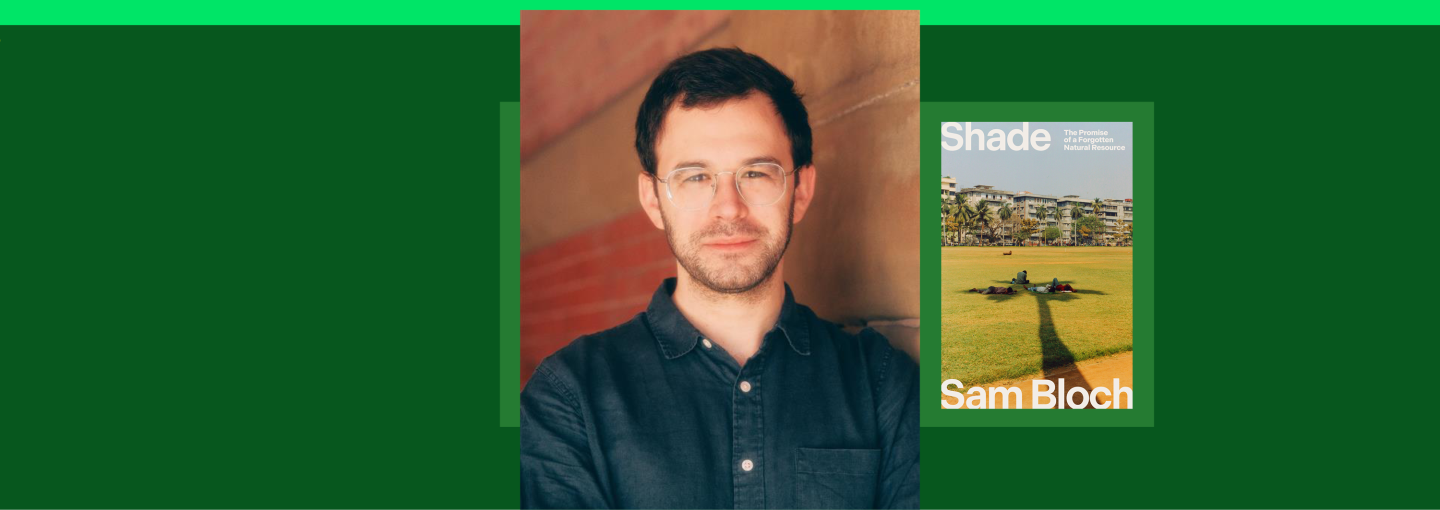
Sam Bloch: Shade, The Promise of a Forgotten Natural Resource
On a 90-degree day in Los Angeles, bus riders across the city line up behind the shadows cast by street signs and telephone poles, looking for a little relief from the sun’s glaring heat. Every summer such scenes play out in cities across the United States, and as Sam Bloch argues, we ignore the benefits of shade at our own peril. Heatwaves are now the country’s deadliest natural disasters with victims concentrated in poorer, less shady areas. Public health, mental health and crime statistics are worse in neighborhoods without it. For some, finding shade is a matter of life and death.
Shade was once a staple of human civilization. In Mesopotamia and Northern Africa, cities were built densely so that courtyards and public passageways were in shadow in the heat of the day, with cool breezes flowing freely. The Greeks famously philosophized in shady agoras. Even today, in Spain’s sunny Seville, political careers are imperiled when leaders fail to put out the public shades that hang above sidewalks in time for summer heat.
So what happened in the United States? Bloch says the arrival of air conditioning and the dominance of cars took away the impetus to enshrine shade into our rapidly growing cities. Though a few heroic planners, engineers, and architects developed shady designs for efficiency and comfort, the removal of shade trees in favor of wider roads and underinvestment in public spaces created a society where citizens retreat to their own cooled spaces, if they can—increasingly taxing the energy grid—or face dangerous heat outdoors.
Bloch says that innovative architects, city leaders, and climate entrepreneurs are looking to revive shade to protect vulnerable people—and maybe even save the planet.
Join us as Bloch shares his extraordinary investigation into shade, bringing together science, history, urban design and social justice to change the way we think about a critical natural resource that should be available to all.
Sam Bloch is an environmental journalist. Previously a staff writer at The Counter, he has written for L.A. Weekly, Places Journal, Slate, The New York Times, CityLab, and Landscape Architecture magazine, among others. Bloch is a graduate of the Columbia Journalism School and a former MIT Knight Science Journalism Fellow and Emerson Collective Fellow. He is based in New York City.
A People & Nature Member-led Forum program. Forums at the Club are organized and run by volunteer programmers who are members of The Commonwealth Club, and they cover a diverse range of topics. Learn more about our Forums.
Photos courtesy the speaker.
Commonwealth Club World Affairs of California
110 The Embarcadero
Toni Rembe Rock Auditorium
San Francisco, CA 94105
United States
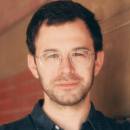
Sam Bloch
Environmental Journalist; Former Staff Writer, The Counter
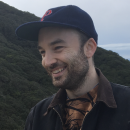
In Conversation with Emmett Fitzgerald
Radio Reporter and Producer, 99% Invisible

